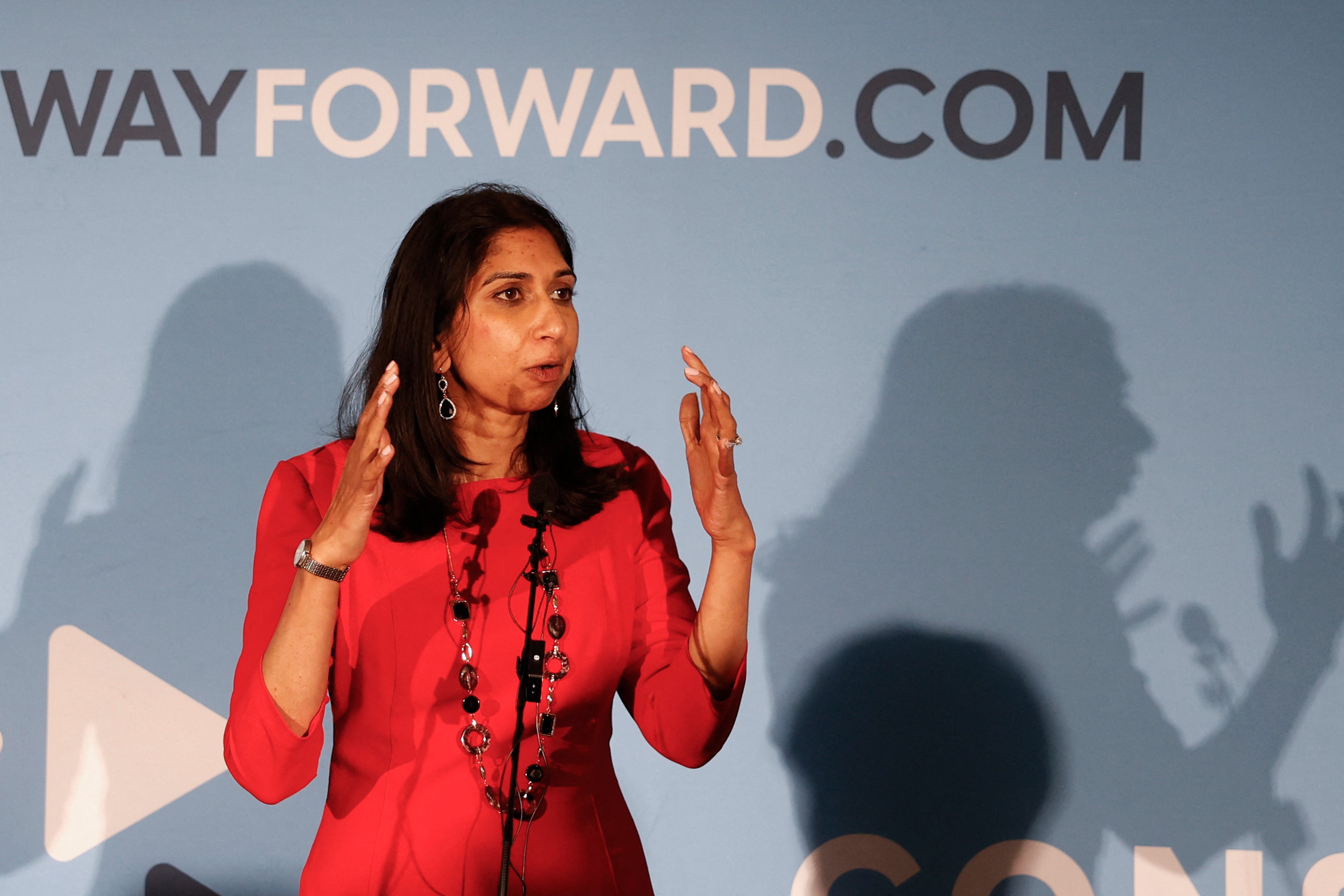Getting ‘tough’ on drug users is an outdated policy – and it reeks of bigotry
The government‘s plan to confiscate the passports of those caught using recreational drugs is ridiculous, writes Ian Hamilton


Getting “tough” on people who use drugs recreationally is hardly a new policy idea, nor one that has evidence of its effectiveness. Nonetheless, the new home secretary, Suella Braverman, has told senior police leaders that’s what she expects them to be.
How exactly police forces are to be “tough” on people who use drugs like cannabis or cocaine isn’t yet clear, as the government has opened up a consultation on the issue, which is due to end on 10 October. Although this may sound like an attempt to garner fresh ideas, it is all too clear from the proposals what the intended direction of the policy will be.
Unlike the response to the pandemic, which loudly “followed the science”, the proposed way of dealing with those who use drugs recreationally is an unashamed departure from science, untethered by the burden of evidence. Not only is this senseless, it is the definition of inefficiency.
There is no pretence when it comes to hiding this ideologically barren approach to policy, either. Take just one of the proposals suggesting that people caught using drugs should be sent on drug awareness courses, similar to speed awareness courses. The document then states: “Less is known about the overall quality and effectiveness of courses currently available.” So, the Home Office is happy to implement an idea before they know it is effective, and without providing detailed costings that taxpayers will underwrite.
But this is mild in comparison to other proposals, which include confiscating passports of repeat offenders and/or removing their driving licence for an undetermined period.
I have no doubt that some will view this as a positive development, believing these individuals have broken the law and deserve everything they get. Indeed, the sole purpose of this proposal is to appeal to the ageing cohort of Tory voters, as age is known to correlate with less liberal views on drug use.
The problem is that contact with the police and the criminal justice system more broadly is not equally spread among those using drugs recreationally. The UK centre of expertise on drugs and drugs law, Release, and Transform, the drug policy think tank, have repeatedly warned that it is young Black men who are disproportionately stopped and searched, arrested and penalised for using drugs like cannabis. This is despite young white men being much more likely to use drugs, creating a doubly unfair approach in the application of drug laws in the UK.
Attempting to reassure those worried that individuals caught using drugs will be left with a criminal record, the Home Office said: “The Drug Enforcement Notice would not form part of an individual’s criminal record. But as a relevant offence is a recordable offence, an entry would be made on the Police National Computer, which may be disclosed as part of an enhanced Disclosure and Barring Service check (DBS).” Although the individual would avoid a criminal record, the impact of having a drug-related entry on the Police National Computer would be just as severe. Many jobs require individuals to have a clear DBS record, many countries will not allow entry if there is a record of drug use – irrespective of how minor this is or the time elapsed since.
To keep up to speed with all the latest opinions and comment, sign up to our free weekly Voices Dispatches newsletter by clicking here
If these proposals are adopted – and there is no reason to believe they will not be, consultation or not – they will amplify the already unjust way that drug laws are enforced in the UK. Those who have the least and are at the wrong end of inequality will find their chances of employment, and therefore securing a whole host of health and social gains, placed further out of reach.
For a government that is supposedly committed to levelling up, it is difficult to see how this policy will contribute in any way towards this ambition. Instead, getting tough on those with the least will, if anything, foster drug use and all the associated problems. This is levelling down at its best.
Join our commenting forum
Join thought-provoking conversations, follow other Independent readers and see their replies
Comments
Bookmark popover
Removed from bookmarks